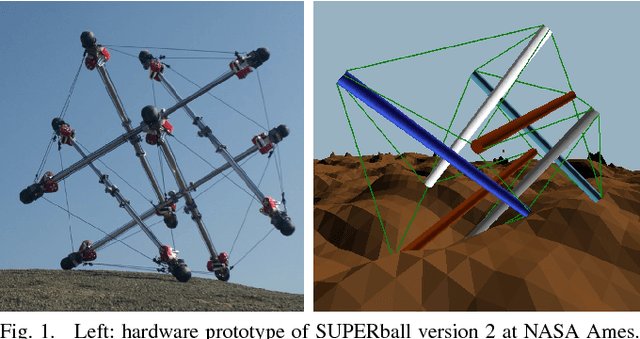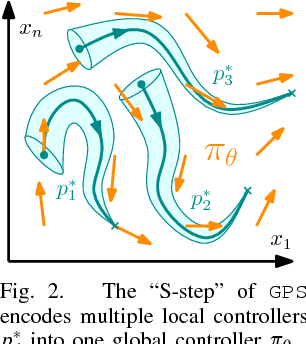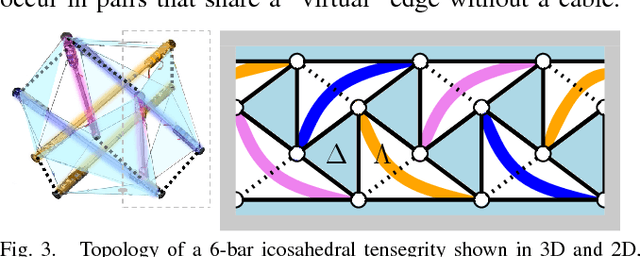Adaptive Tensegrity Locomotion on Rough Terrain via Reinforcement Learning
Paper and Code
Sep 27, 2018



The dynamical properties of tensegrity robots give them appealing ruggedness and adaptability, but present major challenges with respect to locomotion control. Due to high-dimensionality and complex contact responses, data-driven approaches are apt for producing viable feedback policies. Guided Policy Search (GPS), a sample-efficient and model-free hybrid framework for optimization and reinforcement learning, has recently been used to produce periodic locomotion for a spherical 6-bar tensegrity robot on flat or slightly varied surfaces. This work provides an extension to non-periodic locomotion and achieves rough terrain traversal, which requires more broadly varied, adaptive, and non-periodic rover behavior. The contribution alters the control optimization step of GPS, which locally fits and exploits surrogate models of the dynamics, and employs the existing supervised learning step. The proposed solution incorporates new processes to ensure effective local modeling despite the disorganized nature of sample data in rough terrain locomotion. Demonstrations in simulation reveal that the resulting controller sustains the highly adaptive behavior necessary to reliably traverse rough terrain.
 Add to Chrome
Add to Chrome Add to Firefox
Add to Firefox Add to Edge
Add to Edge